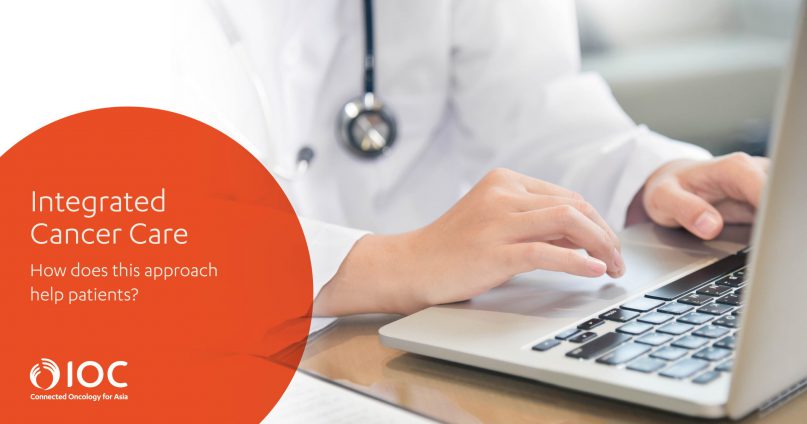Pioneering Integrated Cancer Care in Asia
by Phoebe Ho, CEO, IOC
Bringing hope and quality to cancer care in Asia, Integrated Oncology Centres (IOC) is one of the region’s first connected oncology networks that aims to develop a cohesive, integrated and multidisciplinary approach to the provision of cancer care for patients.
According to global cancer data, in 2018 the global cancer burden increased to 18.1 million cases and 9.6 million cancer deaths with almost half of new cancer cases and more than half of the cancer deaths being reported from Asia. It is expected that Asia will have a surge of around 35% of cancer patients with an increase in the mortality rate of 40% by 2030.
The battle against cancer is not easy. Aside from the psychological burden, the confusion to seek professional help is also significant. Patients have to seek treatment from multiple institutions or healthcare providers, which makes the cancer journey fragmented and complicated.
Adding to the conundrum of fragmented cancer care in Asia, rapid urbanization, shift to personalized healthcare solutions and an ageing population clearly calls for the need of a different approach to successfully manage the rising cancer burden in the region.
Seeing the need to overcome these issues in the patients’ treatment journey, IOC was born out of the passion of doctors and healthcare professionals to deliver a better tomorrow for patients and doctors through integrated cancer care.
Integrated cancer care provides a better approach to cancer care as it reduces the fragmentations of care encountered by patients. An integrated approach helps treat patient with surgery, chemotherapy, behavioral health services, nutritional support and other conventional tools, while also supporting their strength, stamina and quality of life with vocational therapies and counselling.
At IOC, integrated cancer care means bringing together delivery and management of services related to cancer diagnosis, treatment, care and rehabilitation with the patients’ interest as priority.
Benefits of integrated cancer care:
- Multidisciplinary treatment approach – Engaging different professionals who come from different areas of expertise, so that they can combine their skill sets to tackle complex and challenging cancer treatment plans.
- A coordinated care system – Integrated cancer centres function as the point of contact between patients and all health care providers, coordinating different points of care, easing patients of unnecessary hassles during their treatment.
- Enhanced treatment experiences – Patients can receive faster treatment accessibility and reduced treatment cost as our processes are made in a simpler and leaner way.
- Informed treatment decisions – Patients receive a unified treatment decision from a group of doctors and they avoid being confused with information from different health care providers.
- Accessibility to clinical information systems – At IOC Centres, patient information and data are all integrated into one system in each individual centre, making it much easier for clinicians and administrators to track down make timely and accurate clinical decisions.
- Patient support and education – Beyond medications and therapies, IOC offers support and educational programmes that help patients deal with emotional and physical effects of cancer and prepare for a healthier life after treatment.
Cancer treatment is a collaborative effort that requires both the knowledge of various professionals and listening to patients as well to properly care and support them. It is important that integrated cancer care be developed and incorporated into addressing the ongoing needs of cancer patients within the healthcare resources. If the doctors, nurses, allied health professionals and counselors have the opportunity to discuss and collaborate their care efforts, the patient will experience well-rounded, comprehensive treatment.
This article was originally published on Health Matters on May 3, 2021












